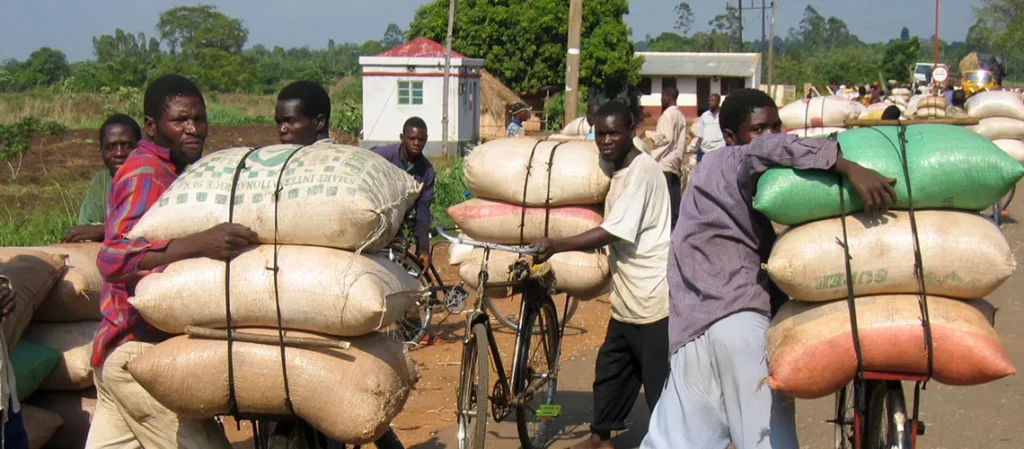- Mozambique’s public debt is expected to drop below 100% in 2023, boosted by the country’s improving economic growth and higher gas revenue
- S&P Global Ratings states Mozambique’s ability to service its rising debt hinges on TotalEnergies SE’s liquefied natural gas project, which has stalled due to terrorism
- TotalEnergies is investing billions in its gas project located in the Cabo Delgado province of Mozambique
Mozambique’s external public and publicly guaranteed debt surged from 61% of GDP in 2016 to 104% in 2018, as undisclosed liabilities were exposed. This led to an unbearable debt service burden, causing Mozambique to default on its debt in 2016. Consequently, credit rating agencies lowered the sovereign’s ratings to selective or restricted default, while the World Bank and the IMF reclassified Mozambique’s external debt as “in distress.”
The revelation of the “hidden” loans had a significant impact on Mozambique, leading to a prolonged economic downturn. The country’s growth rate dropped from 7.7% in the period of 2000-2016 to 3.3% in 2016-2019, as the crisis unfolded. The metical’s value depreciated sharply, and inflation rose to 17.4% by the end of 2016, while the fiscal space shrank significantly.
The lack of confidence among international investors led to a decline in foreign direct investment, and concessional lending from international financial institutions became more limited. As a result, official aid fell from 17.5% to 12.4% of GDP between 2013 and 2018.
Fitch Solutions forecasts
According to Fitch Solutions, Mozambique’s public debt is expected to drop below 100% in 2023, boosted by the country’s improving economic growth, higher gas revenues, and an anticipated appreciation of the metical next year. In their note to investors in December 2022, analysts predicted that Mozambique’s debt burden would gradually decrease in the coming quarters due to increased revenue, particularly from the gas sector, which would limit the need for financing.
Mozambique’s public debt has remained above 100% of GDP since the revelation of the hidden debts scandal in 2016, only falling below 100% in 2019 to 99%, as per International Monetary Fund data.
Additionally, Fitch Solutions believes that the expected appreciation of the metical by 3.1% to 61.94 Metical per dollar in 2023 will further contribute to the decline in the debt-to-GDP ratio. Fitch Solutions also predicts that the fiscal deficit will improve from 3.9% this year to 2.5% next year, mainly due to gas export revenues.
TotalEnergies SE’s liquefied natural gas project
S&P Global Ratings states Mozambique’s ability to service its rising debt hinges on TotalEnergies SE’s liquefied natural gas project, which has stalled due to terrorism. While there is speculation that work may resume, TotalEnergies has not made a decision yet.
Mozambique’s growing debt payments could be difficult to meet without the expected revenue from the project. The nation’s sole US$900 million eurobond faces yearly coupon payments of 9% from 5% next year, and principal payments of US$225 million start from 2028. According to S&P, the gas projects must come online to generate revenue and lower debt-servicing costs.
Despite the presence of foreign troops from Rwanda and the Southern African Development Community, the security situation in Cabo Delgado province, where the Mozambique LNG project is situated, remains unstable due to frequent attacks by small groups of insurgents who are able to evade authorities in densely forested areas.
Since the violence began in 2017, at least 4,668 people have lost their lives, according to Cabo Ligado. As a result, Mozambique’s eurobonds fell to their lowest level since December 9, 2022, declining by 0.8% to 75.2 cents to the dollar in London. S&P currently rates the notes at CCC+.
TotalEnergies Invests Billions in Mozambique as IMF Agrees to Support Package
TotalEnergies is investing billions in its gas project located in the Cabo Delgado province of Mozambique. Despite the project being stalled due to security concerns, the International Monetary Fund (IMF) approved a US$456-million support package last year after a six-year hiatus.
This has allowed Mozambique to receive additional funds from other concessional lenders, including the World Bank, providing some financial buffer.
While the IMF views Mozambique’s debt as sustainable even without the revenue from TotalEnergies’ project, the revenue generated from the project is crucial for the country to meet its debt payments.
Although Mozambique exported its first LNG cargo from a smaller platform built by Eni SpA in November, the revenue from this is insufficient to cover debt payments, according to Samira Mensah, a senior credit analyst at S&P. The ongoing security concerns in Cabo Delgado province have led to a decline in Mozambique’s eurobonds, with S&P rating the notes at CCC+.
Saipem CEO expects gradual return of work on Mozambique LNG project, while TotalEnergies delays decision pending security report. According to Samira Mensah, senior credit analyst at S&P, it is not a matter of if the project will resume, but rather when. Global natural gas markets have been affected by Russia’s invasion of Ukraine, leading European buyers to seek alternative supplies, making Mozambique’s LNG project even more attractive.
Read:Mozambique Govt Gives Positive Assessment of 2022 Despite Missed Targets
